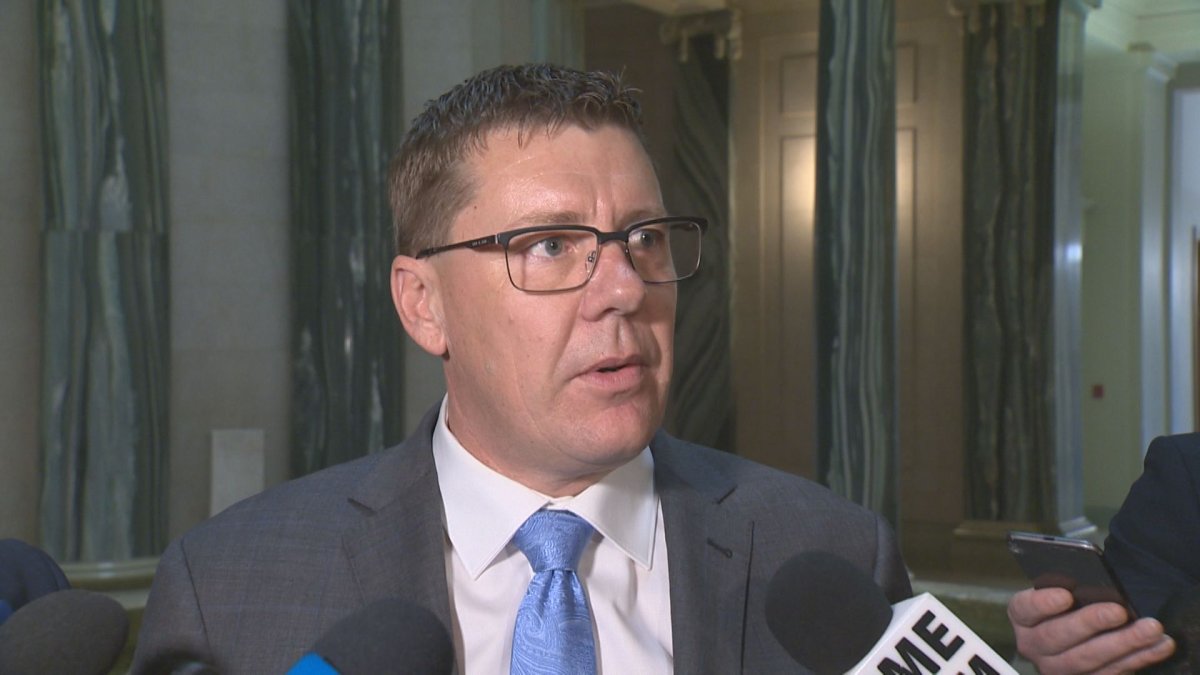Saskatchewan’s premier says he and other provincial leaders have asked Ottawa for more flexibility on $14 billion in transfer funds to help people returning to work during the COVID-19 pandemic.

Scott Moe says most initiatives in Prime Minister Justin Trudeau‘s “safe-restart agreement” are federal ones, and the provinces have little or no input on the parameters.
Moe, who is chairman of the Council of the Federation, said he wants to be able to use some of that money to support industries hit hard by the pandemic, such as the energy sector.
Trudeau has said the offer includes money for personal protective equipment, up to 10 days of paid sick leave for workers without benefits, and support for transit and community programs in municipalities.
Moe said he believes a lot of the money will go towards sick leave, and called it a “trading pawn” for the Liberals because of its minority government.

Get daily National news
Trudeau did not specify how the funds would be divided, but Moe said Saskatchewan stands to receive about $450 million.
“We’re in different situations across this nation with how it’s impacted our economy,” the premier told a news conference Tuesday.
“Virtually all of the provinces, I won’t say all of them… have asked for additional flexibility when it comes to the transfer of those funds.”
The federation, which includes the premiers of each of the 13 provinces and territories, promotes interprovincial-territorial co-operation and works to foster a constructive relationship with Ottawa.
Trudeau has said the $14 billion would be rolled out over six to eight months, and that the provinces need to show how they plan to spend the money before they get any.
Questions about COVID-19? Here are some things you need to know:
Symptoms can include fever, cough and difficulty breathing — very similar to a cold or flu. Some people can develop a more severe illness. People most at risk of this include older adults and people with severe chronic medical conditions like heart, lung or kidney disease. If you develop symptoms, contact public health authorities.
To prevent the virus from spreading, experts recommend frequent handwashing and coughing into your sleeve. They also recommend minimizing contact with others, staying home as much as possible and maintaining a distance of two metres from other people if you go out. In situations where you can’t keep a safe distance from others, public health officials recommend the use of a non-medical face mask or covering to prevent spreading the respiratory droplets that can carry the virus.
For full COVID-19 coverage from Global News, click here.






Comments